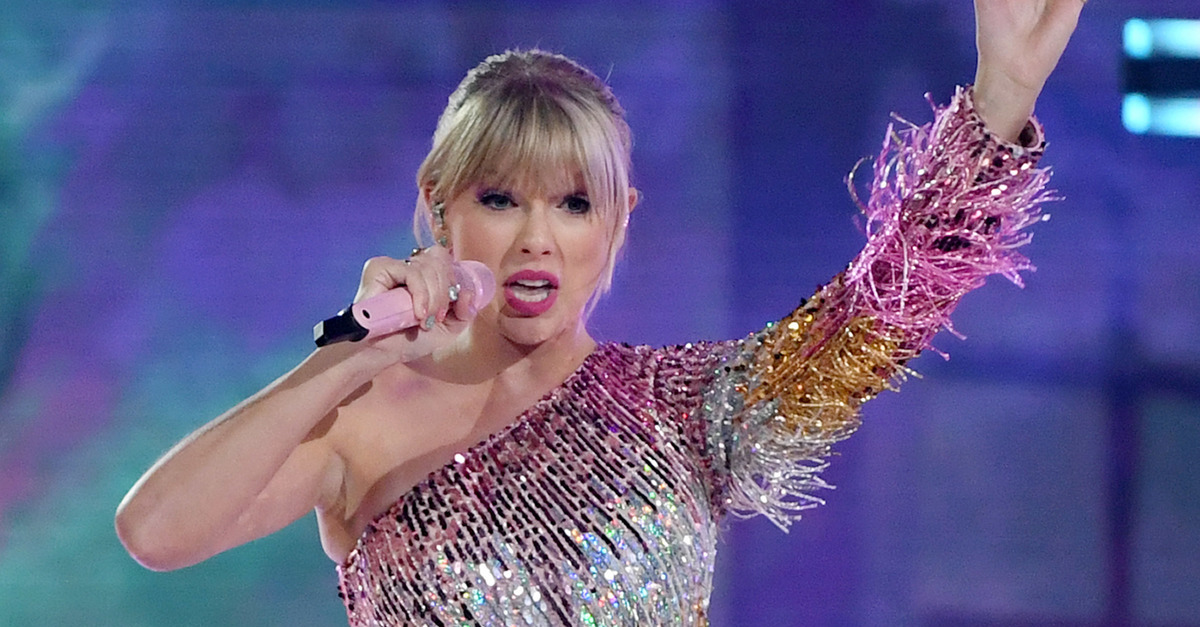
A lawsuit against Taylor Swift over her 2014 hit “Shake It Off” was given new life this week by the same California federal judge who once dismissed it. In 2018, U.S. District Judge Michael Fitzgerald dismissed with prejudice a copyright lawsuit that was filed by songwriters Sean Hall and Nathan Butler, who sued over the “Cause the players gonna play, play, play, play, play and the haters gonna hate, hate, hate, hate, hate” portion of the hit Swift song’s chorus.
Now, after a reversal on appeal, the lawsuit is back in court, and Swift will need to defend it once again. A minute order from Tuesday read as follows:
MINUTES (IN CHAMBERS) ORDER DENYING DEFENDANTS’ MOTION TO DISMISS by Judge Michael W. Fitzgerald. The Motion is DENIED. Defendants shall file their Answer by September 21, 2020. (iv) (Entered: 09/02/2020)
Hall and Butler alleged in their 2017 lawsuit that Swift stole lyrics from their 2000 song “Playas Gon’ Play,” which they had written for the U.S. girl group 3LW. That song contains the lyric: “Playas, they gonna play, and haters, they gonna hate.” Swift argued that the phrase was nothing more than a public domain cliche, unworthy of copyright protection; the court agreed.
In his dismissal back in 2018, Judge Fitzgerald ruled that “combining two truisms about playas and haters” were “both well-worn notions” when the song was written.
“The allegedly infringed lyrics are short phrases that lack the modicum of originality and creativity required for copyright protection,” Fitzgerald wrote; therefore, the commonality was, “simply not enough” to be eligible for copyright protection.
The U.S. Court of Appeals for the Ninth Circuit, however, disagreed, and overturned Fitzgerald’s dismissal. The case was remanded for more proceedings, and once again landed in Judge Fitzgerald’s courtroom. This time, the appellate court’s ruling–that the phrase is eligible for copyright protection–was applied, and the court moved on to analyzing whether Swift’s song is actually a copy in violation of federal copyright law.
Swift’s legal team filed a motion to dismiss; this time, Judge Fitzgerald ruled in favor of the plaintiffs. Hall and Butler, ruled the judge, sufficiently alleged copyright infringement—namely, that “Shake It Off” is similar enough to the plaintiffs’ song to survive a motion to dismiss.
Of course, Judge Fitzgerald’s ruling this week, while significant, is not an outright win for the plaintiffs; at the motion to dismiss phase, the court is merely evaluating whether a case has been properly pleaded, and whether there is enough evidence to warrant taking the litigation forward through additional discovery and trial. A jury might well find that Swift’s song was original enough to withstand a legal challenge–a possibility with which those following the protracted litigation against Led Zeppelin over the originality of “Stairway to Heaven” will know well.
This lawsuit isn’t the first time Swift has needed to shake off a lawsuit about her hit song. In 2015, recording artist Jesse Braham sued Swift, alleging that Swift had stolen the lyrics from his 2013 song, “Haters Gonna Hate.” A different California judge, U.S. District Judge Gail Standish, had some fun with that opinion, remarking on Braham’s handwritten lawsuit in which he acted as his own attorney. Judge Standish dismissed the case, writing:
As currently drafted, the Complaint has a blank space — one that requires Braham to do more than write his name. And, upon consideration of the Court’s explanation in Part II, Braham may discover that mere pleading BandAids will not fix the bullet holes in his case. At least for the moment, Defendants have shaken off this lawsuit.
[image via Ethan Miller/Getty Images]